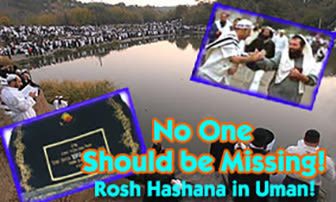
No One Should be Missing!
Everyone arrives to the city that Rebbe Nachman chose in his life and for after his death as his abode in order to celebrate Rosh Hashana with the Rebbe.

Everyone arrives to the city that Rebbe Nachman chose in his life and for after his death as his abode in order to celebrate Rosh Hashanah with the Rebbe.
Thousands from every spectrum in the Jewish rainbow stream to Uman — religious Jews wearing knit kippot (head covering) side-by-side with Hassidim dressed in Streimelach (fur hats), and young men in jeans and T-shirts who come because of the stories they heard from their friends. Everyone arrives to the city that Rebbe Nachman chose in his life and for after his death as his abode in order to celebrate Rosh Hashanah with the Rebbe.
The preparation of this event begins long before Rosh Hashanah. The travel agencies publicize the times of departure and the registration fills up. Fathers and sons, friends and relatives sign up in order to insure their place near Rebbe Nachman of Breslov on Rosh Hashanah. As the time of departure approaches the preparation takes on a hectic pace: pack the suitcases, purchase necessary supplies, check the passport and visa. The excitement builds.
What brings thousands from all over the world to Uman, an isolated farm town in the middle of nowhere between Kiev and Odessa, on the High Holiday?
The clarion call of the Rebbe two hundred years ago draws them: “No one should be missing!” In the talk he gave before the last Rosh Hashanah of his life he stressed the importance of “my Rosh Hashanah,” and warned his Hasidim and students to announce: “Everyone who counted himself one of his followers or took notice of what he said should come to him for Rosh Hashanah without exception. Anyone who has the privilege of being with him for Rosh Hashanah is entitled to be very, very happy.”
The close student of Rebbe Nachman, who continued his spiritual path, was Reb Nosson. He wrote: “The Hassidim understood from his last words before Rosh Hashanah that Rebbe Nachman wanted that even after he passed away the Hassidim would come to his grave site in Uman.” The trip to Rebbe Nachman’s grave on Rosh Hashanah became a principal foundation of Breslover Chassidut over the years, and in recent years has been joined by a flow of all types of Jews.
The desire to fulfill the request of the Rebbe draws everyone to Uman. They want to start the New Year on a better foot, purify their soul and come closer to G-d. Rebbe Nosson explains more about this, based on Rebbe Nachman’s last talk on Rosh Hashanah:
“Out of all of the beautifully sweet and holy words he spoke to us, we learned once more about the importance of the obligation to come to him on Rosh Hashanah. We had already known about it, but from the length at which he spoke about it now, and from his awesome gestures we understood even more how vital it was. This is something that cannot be conveyed in writing. We also learned that he earnestly wanted us to be with him in Uman for Rosh Hashanah every year after his death, and nothing is greater than this.”
Everyone Will Gather and Come to You
The sight at the airport a few days before Rosh Hashanah is moving. The travelers and those that came to send them off create an impression of a national gathering. The travel agencies appoint representatives to check everyone’s visa and hand out tickets to anyone that hasn’t picked them up yet, and in general make sure that everything runs smoothly.
Am overview of the faces in the crowd reveals great happiness, and the joy bursts forth from time to time in spontaneous dancing and singing: “Uman, Uman, Rosh Hashanah…” People waiting in line join in. The line advances as the travelers move through the stages of modern air travel until they arrive at the airport in Kiev, Ukraine. From there they go to the great hope, the flowing river, the holy grave site of Rebbe Nachman.
Many of the travelers have been a number of times in Uman, for some it’s the first time, and some tell that they have come more than twenty Rosh Hashanas to Uman. These trips years ago involved self-sacrifice; the grave site was in the hands of the Communists and approaching it involved real danger. They would come individually so they wouldn’t arouse the suspicion of the ruling authorities and be arrested. Since the fall of the Iron Curtain it has become possible to fly directly from Israel, and the number of arrivals steadily increases. Although many have been there numerous times, the excitement matches the first time. Each time it feels that he has a new meeting with Rebbe Nachman as if he was never there before.
Fasten Your Safety Belts
After the travelers take their place on the plane and the captain gives the order: “Fasten your seat belts,” they are on their way to an unforgettable experience. As they ascend everything below takes on miniature proportions and around them – “How wondrous are Your works, Hashem.” They say farewell to the holy land for a short while full of hope of returning in a state of spiritual completion.
After a three hour flight they land in Kiev, followed by a four hour trip to Uman. With great excitement both the veterans and the first-timers arrive. They bring their luggage to rented apartments, and then immediately run to the tziyun, the grave site of Rebbe Nachman. There they will meet with the Rebbe and fulfill another request of Rebbe Nachman:
Our Rebbe, zt”l, brought together two witnesses, Reb Aharon of Breslov and his student, Reb Naftoli of Nemerov and made a promise before them; “Bear witness to my words. When my days are over and I leave this world, I will still intercede for anyone who comes to my grave, says these Ten Psalms, and gives a penny to charity. No matter how great his sins, I will do everything in my power, spanning the length and breadth of the creation to cleanse and protect him…By his peyos (headside curls) I will pull him out of Gehenom (Hell). I am very positive about everything I say. But I am more positive about this than anything else; these Psalms help very, very much.” He said, “This is the Tikkun Ha’Klali, the Complete Remedy. Every sin has its own individual remedy. But this is the Complete Remedy.”
The unity and love shown by all the elements of the Jewish people who have arrived in Uman is inspiring. Thousand are praying day and night with tears, shouts and broken hearts. On Rosh Hashanah, after the prayer services and the festive meals, they celebrate with dancing and singing into the wee hours of the night.
Why does all this happen in Uman?
When Rebbe Nachman moved to Uman, one of town’s residents came to see him, and blessed him that he should merit to live there a long life. He praised the Rebbe’s house and told him that it had good air for his health, since he was an ill man (he moved there six months before he passed away). Rebbe Nachman pointed out the window and said, “Have you seen how beautiful the garden is there?” The man thought the Rebbe was referring to the garden in front of his house. But the Rebbe explained as he pointed towards the cemetery, visible in the distance, “I’m speaking about that ‘garden.’ You have no idea of the great holiness of your town’s cemetery, tens of thousands of holy people are buried there because of the great sanctification of G-d’s name that happened here.”
In 5521 (1761) the oppressor Gante came to Uman and placed an idol in the synagogue and announced: “Whoever wants to live must bow down to this idol!” Not one of the Jews yielded, every one of them gave up their life in this temporal world for eternal life in the World to Come and made a great sanctification of G-d’s name. For three days and nights the murderers ravaged the town of Uman and killed 30,000 Jews.
Uman was a town sought by the great leaders of Israel, and this was where Rebbe Nachman asked to be buried years before his death. No one knows, said Rebbe Nachman, the great holiness of the cemetery.
For close to two hundred years, a multitude of Jews arrived in Uman to visit the holy grave of Rebbe Nachman, and felt a close soul connection that is impossible to describe. This soul connection is caused by one word – the tziyun – which says it all.
One word that says it all to whoever has been there, and as the old saying goes: “Whoever hasn’t been there, will be there. Whoever was there, will never ever forget!”
For as Rebbe Nachman said, “My Rosh Hashanah is higher than anything else…”



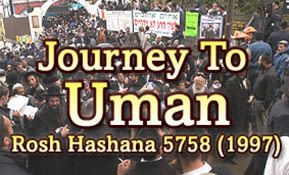
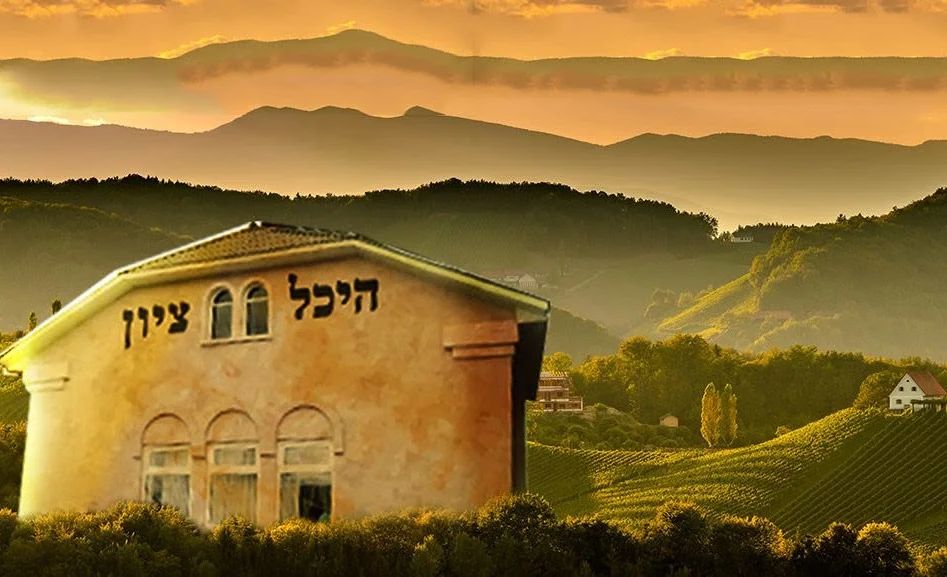
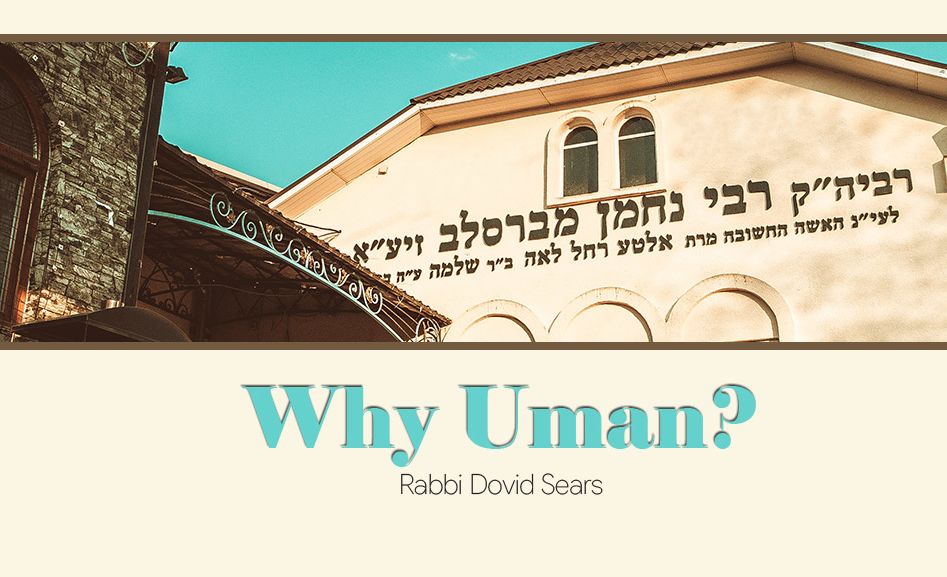
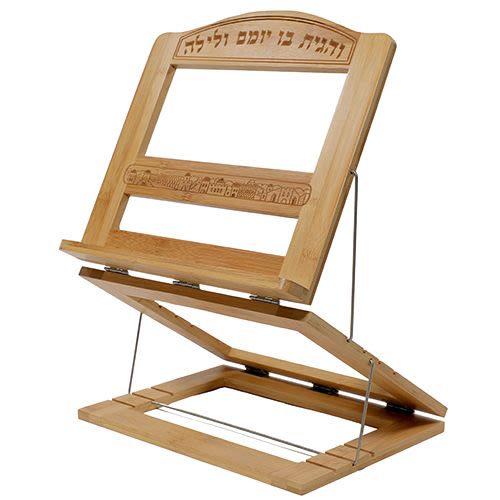
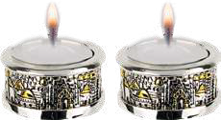
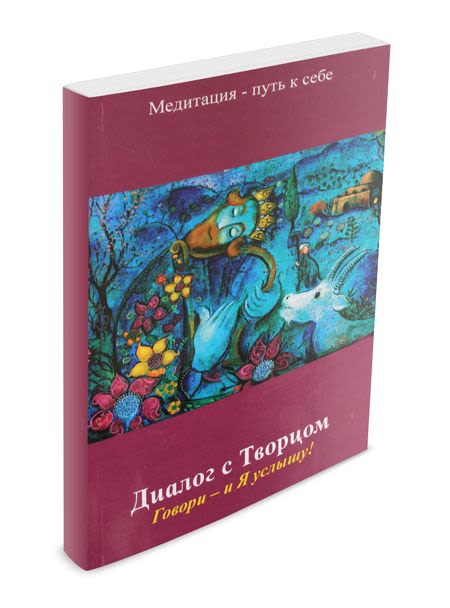
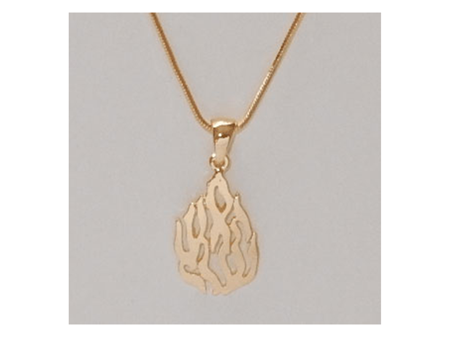
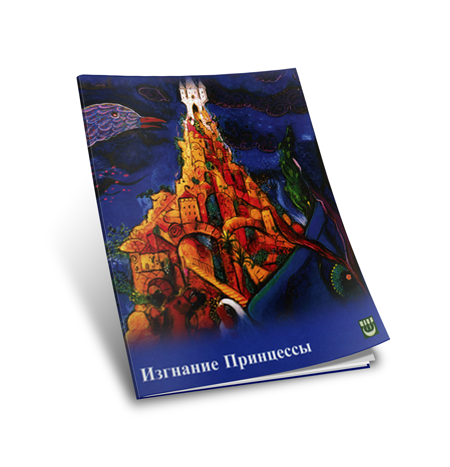
Tell us what you think!
Thank you for your comment!
It will be published after approval by the Editor.